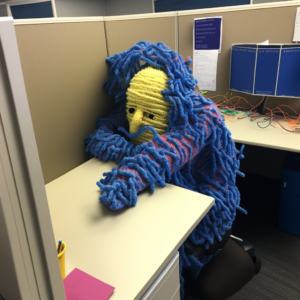-
Table of Contents
- Autism Independent Living: Introduction
- Navigating Social Situations and Building Relationships as an Autistic Adult
- Creating a Support Network for Autism Independent Living
- Finding and Maintaining Employment as an Autistic Adult
- Managing Finances and Budgeting for Autism Independent Living
- Developing Daily Living Skills for Autistic Adults
- Autism Independent Living: Conclusion
Autism Independent Living: Introduction
Autism Independent Living: Strategies for Helping Late-Diagnosed Autistic Adults Live on Their Own is an article that provides practical advice and strategies for individuals with autism who have been diagnosed later in life and are looking to live independently. The article covers a range of topics, including finding suitable housing, managing finances, developing social skills, and accessing support services. It is designed to help autistic individuals navigate the challenges of autism independent living and achieve greater autonomy and self-sufficiency.Navigating Social Situations and Building Relationships as an Autistic Adult
As an autistic adult, navigating social situations and building relationships can be challenging. However, with the right strategies and support, it is possible to develop meaningful connections and lead a fulfilling life. One of the most important things to remember is that everyone has different social needs and preferences. Some autistic adults may prefer to socialize in small groups or one-on-one, while others may enjoy larger gatherings. It’s important to identify what works best for you and to communicate your needs to others. Another helpful strategy is to practice social skills in a safe and supportive environment. This could include joining a social skills group or attending a therapy session focused on social interaction. By practicing social skills in a controlled setting, you can build confidence and develop strategies for handling different social situations. It’s also important to be aware of your own sensory needs and how they may impact your social interactions. For example, if you are sensitive to loud noises, you may find it difficult to socialize in noisy environments. By identifying your sensory needs and communicating them to others, you can create a more comfortable and enjoyable social experience. Building relationships as an autistic adult can also be challenging, but it’s important to remember that meaningful connections can be formed in many different ways. Some autistic adults may prefer to connect with others who share their interests or hobbies, while others may find it easier to connect with people online. It’s also important to be open and honest about your autism diagnosis with potential friends and partners. This can help to avoid misunderstandings and ensure that your needs are understood and respected. Finally, it’s important to remember that building relationships takes time and effort. Don’t be discouraged if it takes longer to form connections than you would like. With patience and persistence, you can develop meaningful relationships that enrich your life. Navigating social situations and building relationships as an autistic adult can be challenging, but with the right strategies and support, it is possible to lead a fulfilling life. By identifying your social needs, practicing social skills, being aware of your sensory needs, and being open and honest about your diagnosis, you can develop meaningful connections and build a supportive network of friends and partners. Remember to be patient and persistent, and don’t be afraid to seek out support and resources when needed.Creating a Support Network for Autism Independent Living
Living independently is a goal that many people strive for, but for late-diagnosed autistic adults, it can be a daunting task. However, with the right support network and strategies in place, it is possible to achieve this goal. Next, we will discuss some strategies for creating a support network for autism independent living. The first step in creating a support network is to identify the people who can help. This may include family members, friends, and professionals such as therapists or social workers. It is important to have a diverse group of people who can provide different types of support. Once you have identified your support network, it is important to communicate your needs and goals to them. This can be done through regular meetings or check-ins, where you can discuss your progress and any challenges you may be facing. It is also important to be open to feedback and suggestions from your support network, as they may have valuable insights and ideas. Another important aspect of creating a support network is to establish clear boundaries and expectations. This can include setting up a schedule for check-ins or outlining specific tasks or responsibilities for each member of the network. By establishing clear boundaries and expectations, everyone will know what is expected of them and there will be less confusion or misunderstandings. In addition to your support network, it is also important to develop your own skills and strategies for autism independent living. This may include learning how to manage your finances, cook healthy meals, or maintain a clean living space. There are many resources available online or through community organizations that can help you develop these skills. It is also important to prioritize self-care and mental health. Living independently can be stressful and overwhelming at times, so it is important to have strategies in place for managing stress and anxiety. This may include practicing mindfulness or meditation, engaging in regular exercise, or seeking support from a therapist or support group. Finally, it is important to celebrate your successes and acknowledge your progress. Living independently is a significant accomplishment, and it is important to recognize the hard work and dedication that went into achieving this goal. By celebrating your successes, you can build confidence and motivation to continue working towards your goals. Creating a support network for autism independent living is essential for late-diagnosed autistic adults. By identifying the people who can help, communicating your needs and goals, establishing clear boundaries and expectations, developing your own skills and strategies, prioritizing self-care and mental health, and celebrating your successes, you can achieve your goal of living independently. Remember, with the right support and strategies in place, anything is possible.Finding and Maintaining Employment as an Autistic Adult
As an autistic adult, finding and maintaining employment can be a daunting task. However, with the right strategies and support, it is possible to succeed in the workforce. Here are some tips for navigating the job market as a late-diagnosed autistic adult. First and foremost, it is important to identify your strengths and interests. Many autistic individuals have unique talents and abilities that can be valuable in the workplace. Take some time to reflect on your skills and passions, and consider how they could translate into a career. For example, if you have a talent for organizing and categorizing information, you may excel in a job that involves data entry or record-keeping. Once you have identified your strengths and interests, it is time to start looking for job opportunities. There are many resources available to help autistic adults find employment, including job coaches, vocational rehabilitation programs, and online job boards. It may also be helpful to network with other autistic individuals who have successfully navigated the job market. When applying for jobs, it is important to be upfront about your autism diagnosis. While it can be tempting to hide this aspect of yourself, it is ultimately better to be honest with potential employers. This can help to avoid misunderstandings and ensure that you receive the accommodations and support you need to succeed in the workplace. In addition to being honest about your diagnosis, it is also important to advocate for yourself in the workplace. This may involve requesting accommodations such as a quiet workspace or flexible scheduling. It may also involve educating your coworkers and supervisors about autism and how it affects you. By being proactive and assertive, you can create a work environment that is supportive and accommodating. Finally, it is important to prioritize self-care and stress management when navigating the job market as an autistic adult. Job hunting and workplace stress can be overwhelming, so it is important to take breaks and engage in activities that help you relax and recharge. This may include exercise, meditation, or spending time with friends and family. Finding and maintaining employment as a late-diagnosed autistic adult can be challenging, but it is possible with the right strategies and support. By identifying your strengths and interests, utilizing available resources, advocating for yourself in the workplace, and prioritizing self-care, you can succeed in the workforce and achieve your career goals. Remember, you are not alone – there is a community of autistic individuals who have successfully navigated the job market, and they are ready to support and encourage you on your journey.Managing Finances and Budgeting for Autism Independent Living
Living independently is a significant milestone for anyone, but it can be especially challenging for late-diagnosed autistic adults. One of the most significant challenges is managing finances and budgeting. However, with the right strategies and support, it is possible to achieve financial independence and live a fulfilling life. The first step in managing finances is to create a budget. A budget is a plan that outlines your income and expenses. It helps you keep track of your spending and ensures that you have enough money to cover your bills and other expenses. To create a budget, you need to know your income and expenses. Your income includes your salary, any benefits you receive, and any other sources of income. Your expenses include your rent or mortgage, utilities, food, transportation, and any other bills you have. Once you have a clear understanding of your income and expenses, you can create a budget. Start by listing all your income sources and then subtracting your expenses. If your expenses are higher than your income, you need to find ways to reduce your expenses or increase your income. If your income is higher than your expenses, you can use the extra money to save or invest. One of the most effective ways to reduce your expenses is to cut back on unnecessary spending. This can include eating out less, buying generic brands instead of name brands, and shopping for deals and discounts. You can also save money by using public transportation instead of owning a car, or by living in a smaller apartment or house. Another important aspect of managing finances is to establish good credit. Good credit is essential for getting loans, credit cards, and other financial products. To establish good credit, you need to pay your bills on time, avoid maxing out your credit cards, and keep your credit utilization ratio low. It is also important to have an emergency fund. An emergency fund is a savings account that you can use to cover unexpected expenses, such as car repairs or medical bills. Ideally, your emergency fund should have enough money to cover three to six months of living expenses. You can start building your emergency fund by setting aside a small amount of money each month. Finally, it is essential to seek support and guidance from professionals and loved ones. Financial planning can be overwhelming, but there are resources available to help you. You can seek advice from a financial planner, accountant, or credit counselor. You can also ask for help from family members or friends who have experience managing their finances. Managing finances and budgeting is a crucial aspect of autism independent living for late-diagnosed autistic adults. By creating a budget, cutting back on unnecessary spending, establishing good credit, building an emergency fund, and seeking support and guidance, you can achieve financial independence and live a fulfilling life. Remember, it is never too late to start taking control of your finances and planning for your future.Developing Daily Living Skills for Autistic Adults
Autism is a developmental disorder that affects communication, social interaction, and behavior. While many people are diagnosed with autism at a young age, some individuals may not receive a diagnosis until later in life. Late-diagnosed autistic adults may face unique challenges when it comes to autism independent living. However, with the right strategies and support, it is possible for these individuals to develop the daily living skills they need to thrive on their own. One of the first steps in helping late-diagnosed autistic adults live independently is to identify their strengths and weaknesses. This can be done through a comprehensive assessment that takes into account their cognitive abilities, communication skills, and sensory processing issues. Once strengths and weaknesses have been identified, a personalized plan can be developed to help the individual develop the skills they need to live independently. One important area to focus on is daily living skills. These are the skills that individuals need to take care of themselves and their home on a daily basis. This includes things like cooking, cleaning, and managing finances. For late-diagnosed autistic adults, these skills may not have been taught or reinforced during childhood, making it more difficult to learn them as an adult. However, with patience and persistence, it is possible to develop these skills. One strategy for developing daily living skills is to break them down into smaller, more manageable tasks. For example, instead of trying to learn how to cook an entire meal at once, start by learning how to make a simple dish like scrambled eggs. Once that skill has been mastered, move on to more complex dishes. This approach can help build confidence and prevent overwhelm. Another strategy is to use visual aids and checklists to help with organization and planning. Autistic individuals often benefit from visual supports, which can help them understand and remember information more easily. For example, a checklist can be used to break down the steps involved in doing laundry, making it easier to remember what needs to be done. It is also important to consider sensory issues when developing daily living skills. Autistic individuals may be hypersensitive to certain stimuli, such as loud noises or bright lights. This can make it difficult to complete tasks like grocery shopping or cooking. By identifying and addressing these sensory issues, it is possible to make these tasks more manageable. For example, wearing noise-cancelling headphones while grocery shopping can help reduce sensory overload. Finally, it is important to provide ongoing support and encouragement. Learning new skills can be challenging, and it is important to celebrate even small successes along the way. This can help build confidence and motivation to continue learning and growing. Developing daily living skills is an important step in helping late-diagnosed autistic adults live independently. By identifying strengths and weaknesses, breaking tasks down into smaller steps, using visual aids and checklists, addressing sensory issues, and providing ongoing support, it is possible to develop the skills needed to thrive on one’s own. With patience, persistence, and a supportive community, late-diagnosed autistic adults can achieve their goals and live fulfilling lives.Autism Independent Living: Conclusion
In conclusion, autism independent living strategies are essential for late-diagnosed autistic adults to live on their own. These strategies include developing life skills, creating a supportive environment, and utilizing assistive technology. With the right support and resources, autistic adults can achieve independence and lead fulfilling lives.Similar Articles

Creating an Autism Friendly Home Environment
April 25, 2023
5 Comments
Table of Contents Introduction Benefits of an Autism Friendly Home Environment for Late-Diagnosed Autistic Adults Importance of Communication and Collaboration in Creating an Autism Friendly

Mindfulness and Autism: Exploring the Benefits of Meditation for Late-Diagnosed Autistic Adults
May 15, 2023
3 Comments
Table of Contents Mindfulness and Autism: Introduction Understanding the Connection Between Mindfulness and Autism Mindfulness-Based Interventions for Autism: Current Research and Future Directions The Benefits

Autism Legal Rights and the Legal Loom: Understanding Rights and Advocacy for Autistic Individuals
March 9, 2023
No Comments
Navigating autism legal rights and protections can be a complex process. In this article, we will discuss the importance of understanding the legal rights and










One Response
v8sbsm